“Insane or not, Rudy was always destined to be Liesel’s best friend. A snowball in the face is surely the perfect beginning to a lasting friendship.” The Book Thief, Markus Zusak
Rudy Steiner, one of the most beloved characters from Markus Zusak’s The Book Thief, is a young boy growing up in Nazi Germany. His story unfolds in great turmoil and fear, yet Rudy’s character shines as a beacon of innocence, friendship, and defiance. Through his interactions with the protagonist, Liesel Meminger, Rudy becomes a symbol of childhood resilience in the face of oppressive societal norms.
Born into a family with many siblings, Rudy’s life is shaped by the harsh realities of World War II. His experiences, however, are not merely defined by the external forces at play but by the personal battles he fights within. Rudy’s unwavering loyalty, mischievous nature, and undying love for Liesel make him an endearing figure in the narrative. The duality of Rudy’s character—being a child caught in the cruel machinery of war and yet possessing a mature understanding of the injustices around him—adds depth to his portrayal.
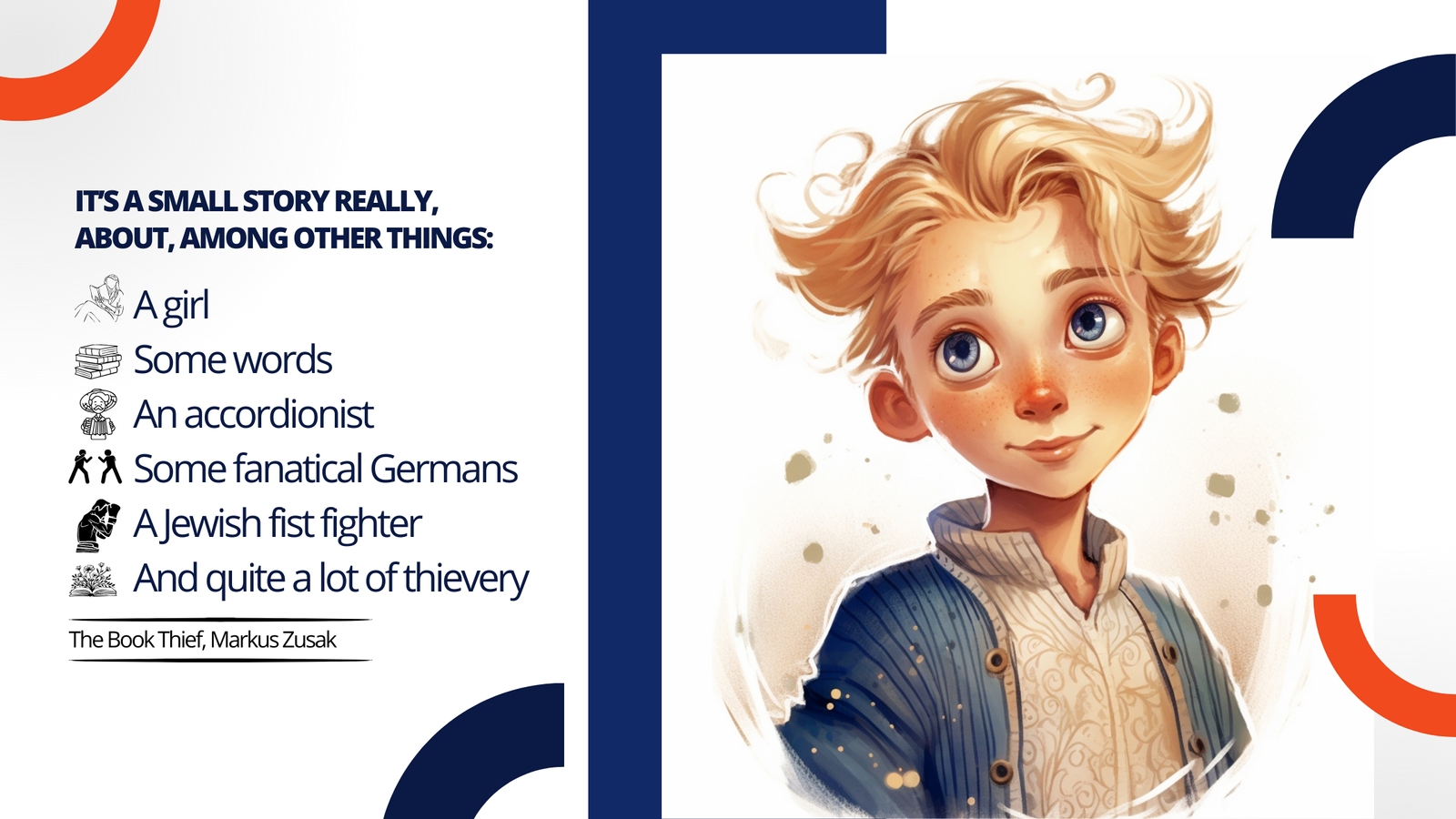 Rudy’s most distinctive trait is his obsession with Jesse Owens, the African American athlete who won four gold medals in the 1936 Olympics. This admiration is not just a childhood fancy but a subtle act of rebellion against the Aryan ideals propagated by the Nazi regime. Rudy’s decision to paint himself with charcoal and run around the track like his idol is poignant, representing his innocence and defiance. It is through these small acts that Zusak highlights the stark contrast between Rudy’s world of childhood fantasies and the grim reality of Nazi Germany.
Rudy’s most distinctive trait is his obsession with Jesse Owens, the African American athlete who won four gold medals in the 1936 Olympics. This admiration is not just a childhood fancy but a subtle act of rebellion against the Aryan ideals propagated by the Nazi regime. Rudy’s decision to paint himself with charcoal and run around the track like his idol is poignant, representing his innocence and defiance. It is through these small acts that Zusak highlights the stark contrast between Rudy’s world of childhood fantasies and the grim reality of Nazi Germany.
Despite the brutal environment he grows up in, Rudy maintains a sense of hope and courage that is both inspiring and tragic. His relationship with Liesel is one of the purest forms of companionship, filled with shared secrets, adventures, and dreams. Rudy’s persistence in asking Liesel for a kiss throughout the novel adds a touch of humor and sweetness to his character, making his eventual fate even more heart-wrenching.
In this character sketch, we will delve into the complexities of Rudy Steiner’s personality, exploring his physical and emotional characteristics, his motives and intentions, his core values, and the relationships that define him. We will also examine what Rudy teaches us about love, courage, and resistance and how his character arc unfolds in the broader narrative context. Through this analysis, we aim to understand Rudy Steiner not just as a character in a book but as a representation of the lost innocence of a generation marred by war.
What Are His Physical and Emotional Characteristics?
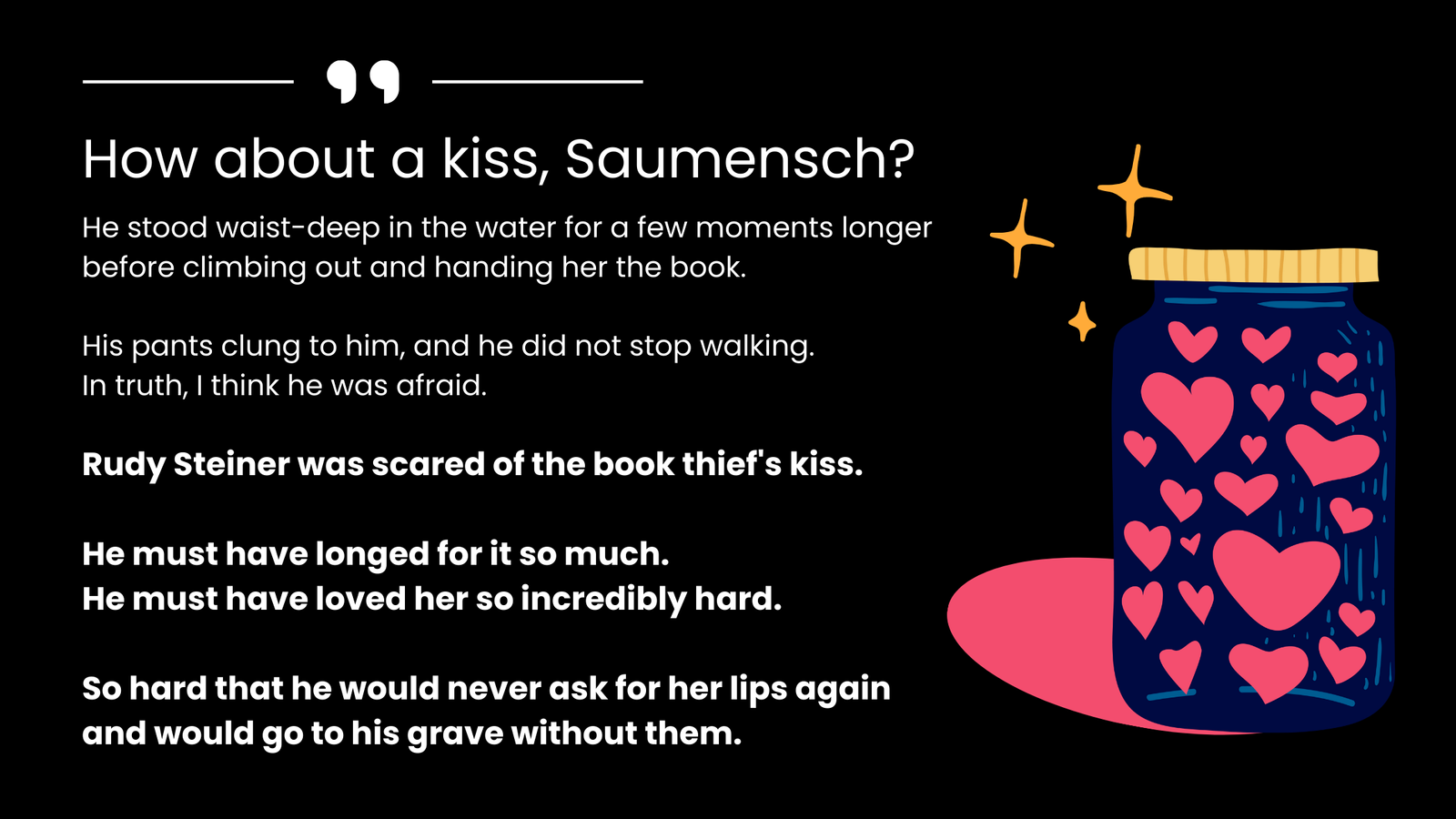 Rudy Steiner is a multifaceted character, and his physical and emotional characteristics are intricately woven into the fabric of The Book Thief. Physically, Rudy is described as having “hair the color of lemons,” a detail that Markus Zusak uses to set him apart visually from the other children in Molching. His blue eyes and athletic build also make him the perfect candidate for the Hitler Youth, yet these very characteristics become ironic as Rudy rejects the ideologies associated with them.
Rudy Steiner is a multifaceted character, and his physical and emotional characteristics are intricately woven into the fabric of The Book Thief. Physically, Rudy is described as having “hair the color of lemons,” a detail that Markus Zusak uses to set him apart visually from the other children in Molching. His blue eyes and athletic build also make him the perfect candidate for the Hitler Youth, yet these very characteristics become ironic as Rudy rejects the ideologies associated with them.
Rudy’s athleticism is a significant aspect of his physical identity. He is a talented runner known for his speed and agility, which makes his admiration for Jesse Owens even more profound. This physical prowess, however, is not just about strength and endurance; it symbolizes Rudy’s desire to excel and stand out in a world that demands conformity. His passion for sports is not merely a hobby but an escape, a way to channel his energy and frustration in a world that increasingly seeks to control and suppress individuality.
Emotionally, Rudy is a complex character. On the surface, he appears to be a typical boy—playful, mischievous, and full of life. He enjoys pranking his friends, getting into trouble, and engaging in harmless banter. However, beneath this playful exterior lies a deep sensitivity and awareness of the world around him. Rudy is acutely aware of the injustices and hypocrisies of the Nazi regime, even if he cannot fully articulate them. His understanding of right and wrong is intuitive, driven by a solid moral compass that guides his actions throughout the story.
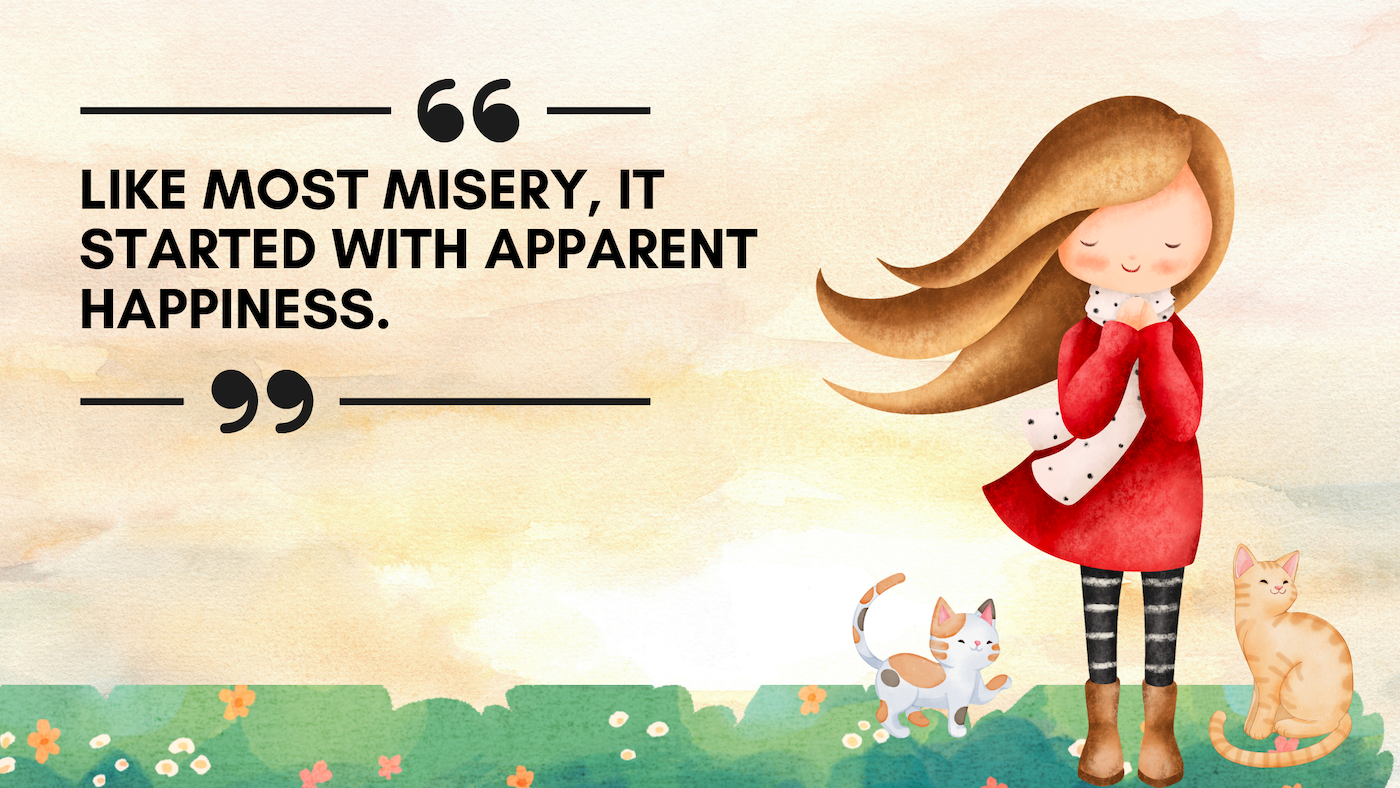 One of Rudy’s most defining emotional traits is his fierce loyalty. His friendship with Liesel is the cornerstone of his character, and he is unwavering in his support and protection of her. Whether it’s standing up to bullies or helping Liesel steal books, Rudy is always by her side, ready to take risks for her without hesitation. This loyalty is not limited to Liesel but extends to his family and friends, showcasing a deep sense of responsibility and care for those he loves.
One of Rudy’s most defining emotional traits is his fierce loyalty. His friendship with Liesel is the cornerstone of his character, and he is unwavering in his support and protection of her. Whether it’s standing up to bullies or helping Liesel steal books, Rudy is always by her side, ready to take risks for her without hesitation. This loyalty is not limited to Liesel but extends to his family and friends, showcasing a deep sense of responsibility and care for those he loves.
His romantic feelings for Liesel further highlight Rudy’s emotional depth. His persistent requests for a kiss, though often played for humor, manifest his genuine affection and longing for a connection beyond friendship. This unrequited love adds a layer of poignancy to Rudy’s character as he grapples with emotions beyond his years. His passion for Liesel is pure and selfless, becoming one of his character’s most enduring elements.
In addition to his loyalty and love, Rudy exhibits a strong sense of justice. He is not afraid to challenge authority, as seen when he refuses to attend Hitler Youth meetings or when he confronts Franz Deutscher, the cruel leader of the group. These acts of defiance, though seemingly small, are Rudy’s way of resisting the oppressive regime that seeks to mold him into something he is not. His courage to stand up for what he believes in, even at the cost of personal safety, is a testament to his integrity and moral strength.
Rudy’s emotional journey is also marked by moments of vulnerability and fear. Despite his bravery, Rudy is still a child, and the horrors of war inevitably affect him. The air raids, the presence of soldiers, and the constant threat of death weigh heavily on him, leading to moments of despair and uncertainty. However, even in these moments, Rudy’s resilience shines through. He refuses to give in to fear, finding solace in his friendship with Liesel and the small joys of life.
Overall, Rudy Steiner is a character defined by his physical vitality and emotional depth. His outward appearance and athletic abilities are juxtaposed with an inner world filled with love, loyalty, and a profound sense of justice. These characteristics make Rudy a compelling and relatable figure, embodying the innocence and courage of youth in a time of unimaginable darkness.
What Are His Motives and Intentions?
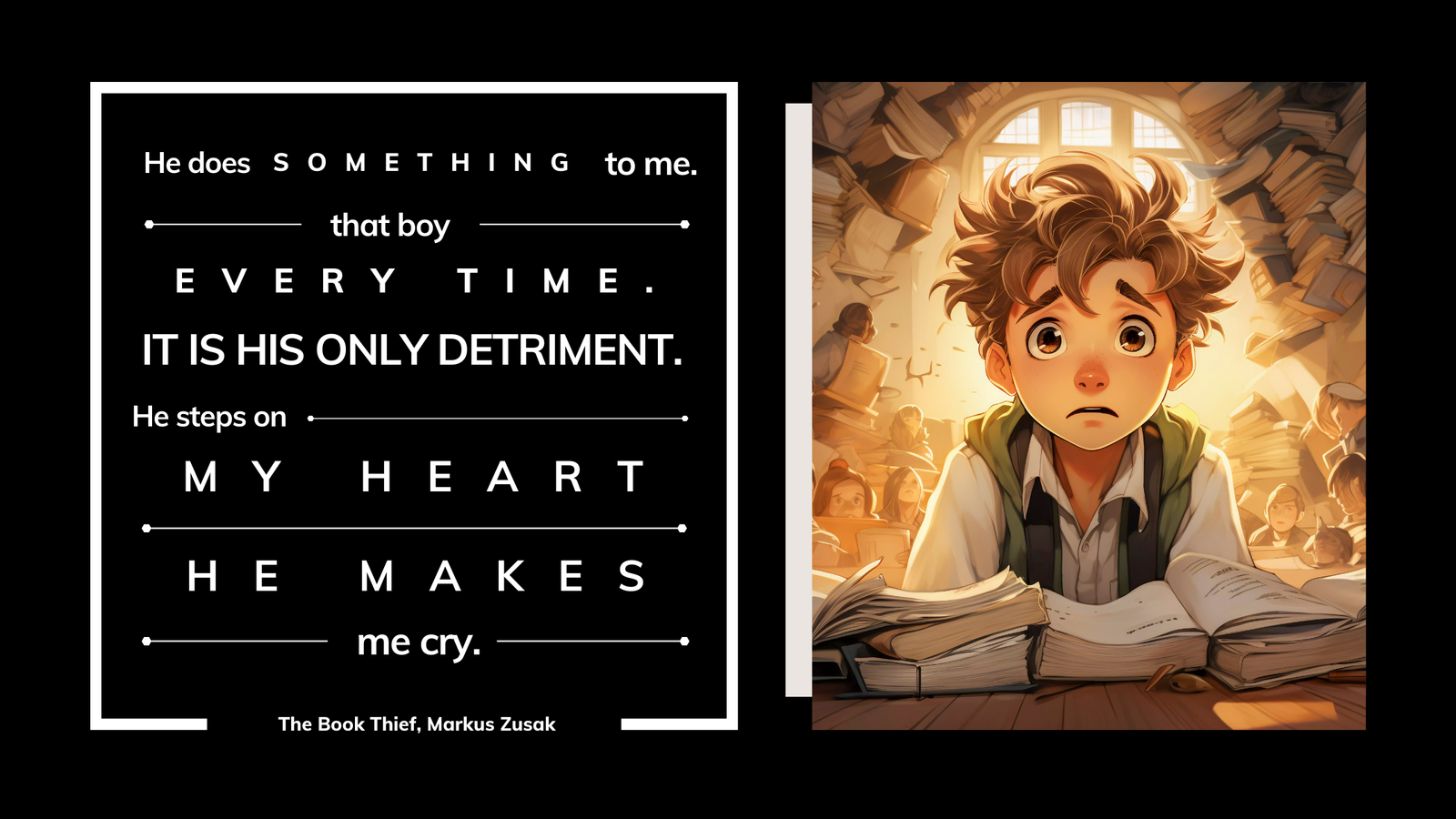 A combination of his personal experiences shapes Rudy Steiner’s motives and intentions, the influence of his family, and the socio-political environment of Nazi Germany. At his core, Rudy is driven by a desire for justice, acceptance, and a longing for love and companionship.
A combination of his personal experiences shapes Rudy Steiner’s motives and intentions, the influence of his family, and the socio-political environment of Nazi Germany. At his core, Rudy is driven by a desire for justice, acceptance, and a longing for love and companionship.
One of Rudy’s primary motives is his quest for fairness and justice. Growing up in a regime that preaches hatred and discrimination, Rudy instinctively rejects these ideologies. His admiration for Jesse Owens, an African American athlete, is a direct challenge to the racial purity ideals of the Nazis. Despite the potential consequences, Rudy’s decision to emulate Owens reflects his deep-seated belief in equality and his willingness to stand up for what he believes is right. This act of rebellion, though seemingly innocent, is a powerful statement against the injustices of the time.
Rudy’s relationship with Liesel also reveals his intentions. His unwavering loyalty to her is not just about friendship; it’s about finding someone who understands him in a world that often feels alien and hostile. A need for emotional connection and validation drives Rudy’s repeated attempts to kiss Liesel. He is a boy on the cusp of adolescence, grappling with feelings of love and attraction that are both new and confusing. His intentions are pure, driven by a genuine affection for Liesel and a desire to be close to her.
 Another significant aspect of Rudy’s motives is his desire for approval and acceptance, particularly from his father. As the eldest son in a large family, Rudy feels the weight of expectations on his shoulders. His father’s insistence on Rudy joining the Hitler Youth, despite Rudy’s resistance, creates a conflict between his need to please his father and his moral convictions. This internal struggle is a driving force in Rudy’s actions, as he seeks to reconcile society’s expectations with his personal beliefs.
Another significant aspect of Rudy’s motives is his desire for approval and acceptance, particularly from his father. As the eldest son in a large family, Rudy feels the weight of expectations on his shoulders. His father’s insistence on Rudy joining the Hitler Youth, despite Rudy’s resistance, creates a conflict between his need to please his father and his moral convictions. This internal struggle is a driving force in Rudy’s actions, as he seeks to reconcile society’s expectations with his personal beliefs.
Rudy’s intentions are also shaped by the environment in which he grows up. The war, the presence of the Nazi regime, and the constant threat of violence force Rudy to mature quickly. His decisions are often influenced by the need to survive and protect those he loves. Whether it’s stealing food to help his family or standing up to bullies to defend Liesel, Rudy’s actions are guided by a strong sense of duty and responsibility.
In essence, Rudy Steiner’s motives and intentions are a complex interplay of personal values, familial expectations, and the harsh realities of his world. His desire for justice, love, and acceptance drives him to make courageous and deeply human choices, making him a character of profound depth and resonance.
What Are His Core Values, Including His Relationships?
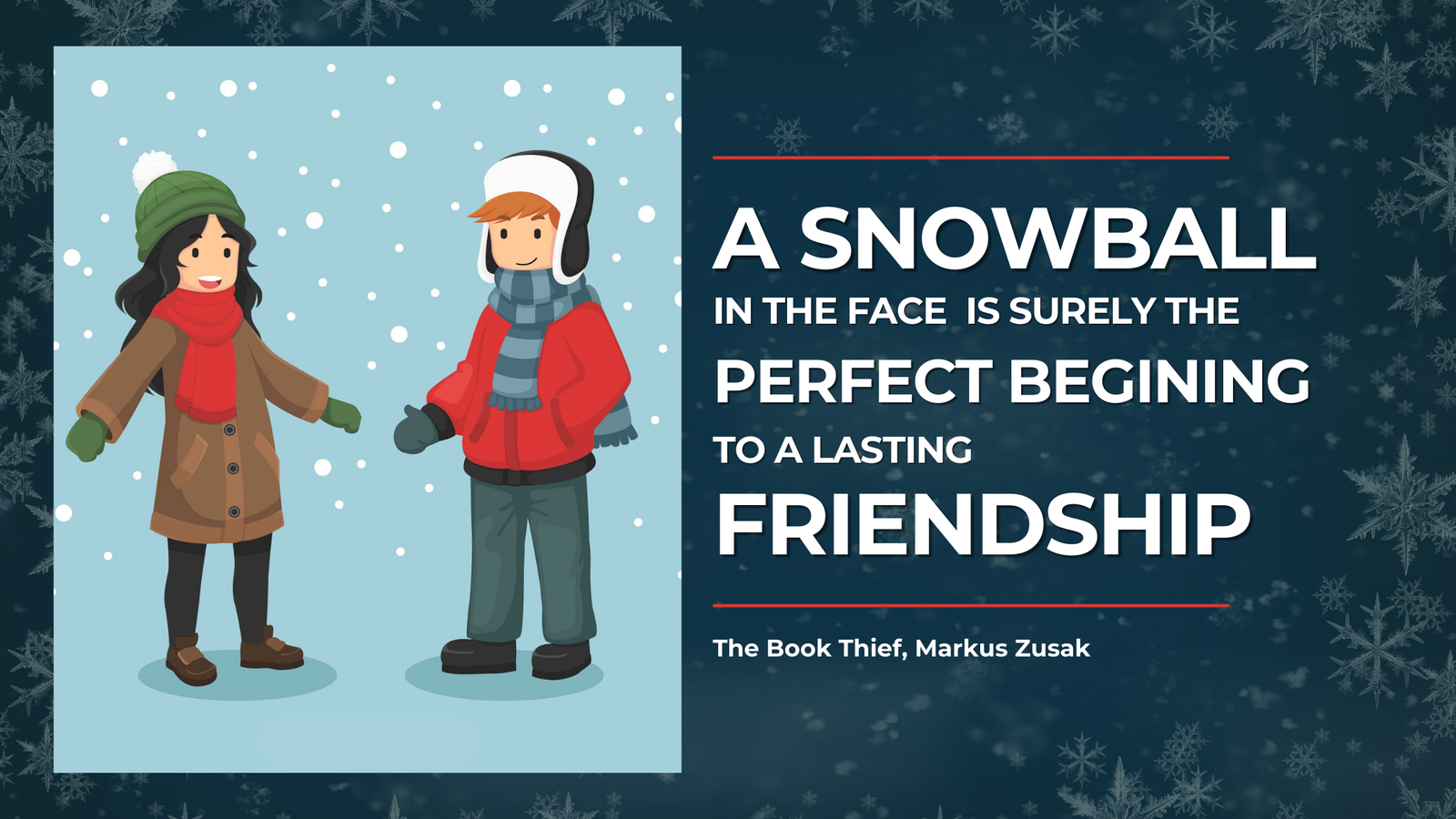 Rudy Steiner’s core values are deeply intertwined with his relationships and actions throughout The Book Thief. His principles of loyalty, courage, and justice are central to his character, all of which are vividly illustrated through his interactions with those around him.
Rudy Steiner’s core values are deeply intertwined with his relationships and actions throughout The Book Thief. His principles of loyalty, courage, and justice are central to his character, all of which are vividly illustrated through his interactions with those around him.
Loyalty is perhaps Rudy’s most defining value. His relationship with Liesel Meminger exemplifies this trait. From their first meeting, Rudy shows an unwavering commitment to Liesel, standing by her through every challenge. Whether he’s aiding her in stealing books or providing emotional support, Rudy’s loyalty is a constant. This dedication is not limited to Liesel; it also extends to his family. As the eldest son, Rudy assumes significant responsibilities to support his parents and siblings during the war, demonstrating a deep sense of duty and care.
Courage is another fundamental value for Rudy. His bravery is apparent in his defiance of the Nazi regime’s oppressive ideologies. His admiration for Jesse Owens, a symbol of racial equality, serves as a subtle but powerful act of resistance against the Aryan ideals imposed by the Nazis. Rudy’s decision to paint himself with charcoal and mimic Owens’ running style is an overt rejection of Nazi racial policies. His courage is also evident in his everyday actions, such as standing up to bullies and facing the harsh realities of war with determination. Rudy’s willingness to confront injustice, even when it puts him at risk, underscores his moral strength.
Justice is a core value that guides Rudy’s decisions and interactions. His sense of right and wrong is evident in his resistance to joining the Hitler Youth despite the pressure from his father. Rudy’s refusal to conform to Nazi ideology reflects his internal moral compass and his commitment to fairness. His actions, such as protecting Liesel from harm and helping his family navigate the difficulties of war, are driven by a strong sense of justice and empathy.
Rudy’s relationships are a direct reflection of these values. His friendship with Liesel is a profound and supportive bond characterized by mutual trust and affection. Their connection provides both characters emotional solace and strength in a world of fear and loss. Rudy’s relationship with his family also highlights his values. His responsibilities as the eldest son reveal his commitment to his family’s well-being, even in the face of personal sacrifices.
Rudy Steiner’s core values of loyalty, courage, and justice are integral to his character. These principles define his actions and enrich his relationships, making him a compelling and relatable figure in The Book Thief. Rudy’s values are brought to life through his interactions with Liesel and his family, illustrating the impact of personal integrity and the power of human connection.
What Does Rudy Steiner Teach Us?
 Rudy Steiner’s character in The Book Thief offers profound lessons about resilience, courage, and the enduring strength of human connections. His story provides insights into how one can navigate adversity with grace and maintain one’s humanity despite overwhelming challenges.
Rudy Steiner’s character in The Book Thief offers profound lessons about resilience, courage, and the enduring strength of human connections. His story provides insights into how one can navigate adversity with grace and maintain one’s humanity despite overwhelming challenges.
Resilience is a central theme in Rudy’s story. Despite the harsh realities of war and the oppressive Nazi regime, Rudy Steiner remains optimistic and spirited. His ability to find joy and humor, even in dire circumstances, demonstrates remarkable resilience. Rudy’s playful nature and determination to live life fully despite the dangers surrounding him serve as a powerful reminder of the strength of the human spirit. His resilience is about enduring hardship and finding ways to thrive and bring light to those around him.
Courage is another crucial lesson from Rudy’s character. His defiance of Nazi ideologies, mainly through his admiration for Jesse Owens, is a significant act of bravery. Rudy’s courage is not just about overt acts of resistance but also about standing firm in his beliefs and values. His willingness to challenge societal norms and confront injustice, even with personal risk, highlights the importance of acting with conviction and integrity. Rudy’s bravery teaches us that courage involves staying true to one’s principles, even in adversity.
The power of human connections is a central theme in Rudy’s story. His deep friendship with Liesel and loyalty to his family underscores the importance of love, support, and empathy. Rudy’s relationship with Liesel, marked by shared dreams and mutual support, provides both characters with strength and solace. Their bond illustrates how meaningful connections can offer comfort and hope, even in the darkest times. Despite the pressures of war, Rudy’s dedication to his family further emphasizes the significance of nurturing relationships and supporting those we care about.
Authenticity and staying true to oneself are also critical lessons from Rudy’s character. Despite the societal pressures to conform to Nazi ideals, Rudy Steiner remains true to his values and beliefs. His resistance to joining the Hitler Youth program and admiration for Jesse Owens reflect his commitment to authenticity and moral integrity. Rudy’s story teaches us the importance of remaining true to our principles, even when it is challenging.
Overall, Rudy Steiner’s character imparts valuable lessons about resilience, courage, and the power of human connections. His journey through adversity and his unwavering commitment to his values and relationships offer a poignant reminder of the strength of the human spirit and the importance of maintaining one’s integrity in the face of overwhelming darkness.
Character Arc of Rudy Steiner
Rudy Steiner’s character arc in The Book Thief is a poignant journey of growth, resistance, and sacrifice. His evolution from a playful, romantic boy to a symbol of bravery and tragedy mirrors the novel’s broader themes and provides a profoundly emotional narrative.
Early Innocence: At the story’s beginning, Rudy Steiner is introduced as a vibrant, mischievous child with boundless energy and a zest for life. His playful antics, such as painting himself with charcoal to emulate his idol, Jesse Owens, and his persistent attempts to kiss Liesel establish him as a figure of innocence and youthful exuberance. Rudy’s early interactions are characterized by his sense of adventure and a carefree attitude, contrasting with the growing darkness of the world around him.
Awakening to Reality: As the story progresses, Rudy Steiner begins to confront the harsh realities of Nazi Germany. His involvement in the Hitler Youth program, despite his reluctance, marks a shift from his initial innocence to a more complex understanding of the socio-political environment. Rudy’s admiration for Jesse Owens and his rejection of Nazi ideals reflect his growing awareness of the regime’s oppressive nature. An internal struggle marks this phase of Rudy’s character arc as he navigates the expectations imposed by society and his personal beliefs.
Deepening Relationships: Rudy’s relationship with Liesel becomes increasingly central to his character arc. Their friendship, filled with shared secrets and mutual support, gives Rudy a sense of purpose and connection. His feelings for Liesel evolve from innocent affection to a deeper, more profound love, adding complexity to his character. This relationship is a source of strength and solace for both characters, significantly as the external pressures of war intensify. Rudy’s loyalty to Liesel is a defining aspect of his character, illustrating his capacity for profound emotional bonds and commitment to those he loves.
Confronting Adversity: The escalation of the war and the increasing danger to his loved ones push Rudy Steiner to demonstrate his bravery and resilience. His actions, such as stealing food to support his family and standing up to bullies, reflect his courage and sense of responsibility. Despite the ever-present threat of violence and loss, Rudy remains steadfast in his commitment to those around him. His bravery in the face of adversity is both inspiring and tragic, highlighting the impact of war on individual lives.
Tragic Sacrifice: Rudy’s character arc culminates in his tragic death, a powerful and heartbreaking end to his journey. His sacrifice is a poignant reminder of the cost of war and the impact of personal courage and loyalty. Rudy’s final moments, marked by his bravery and the enduring strength of his character, underscore the novel’s themes of loss and resilience. His death serves as a symbol of the lost innocence and the enduring spirit of those who faced unimaginable darkness.
In summary, Rudy Steiner’s character arc is a journey from innocence to awareness, marked by growth, resistance, and ultimate sacrifice. His evolution throughout the novel reflects the broader themes of The Book Thief and provides a profoundly emotional and resonant narrative.
Conclusion
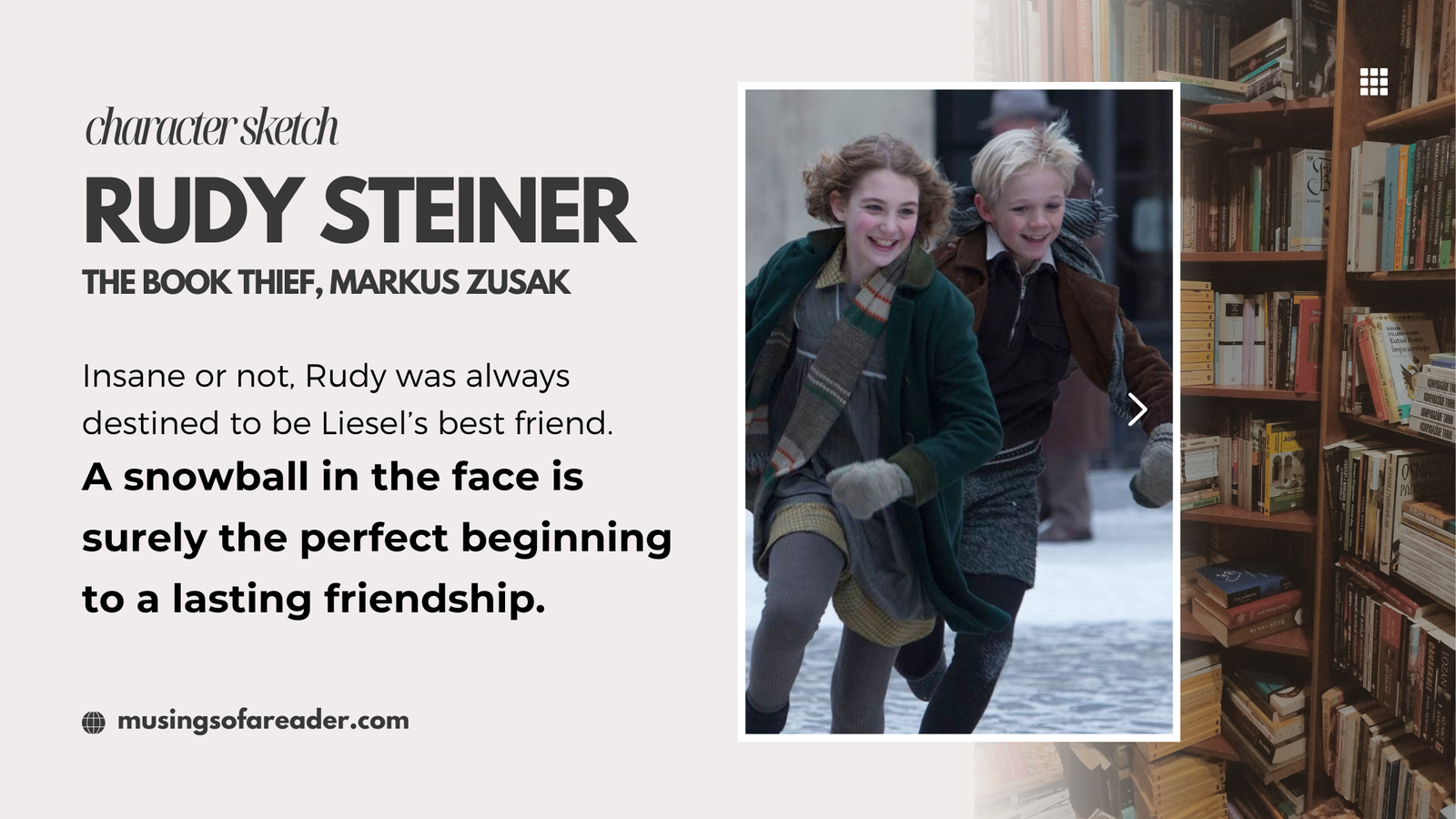


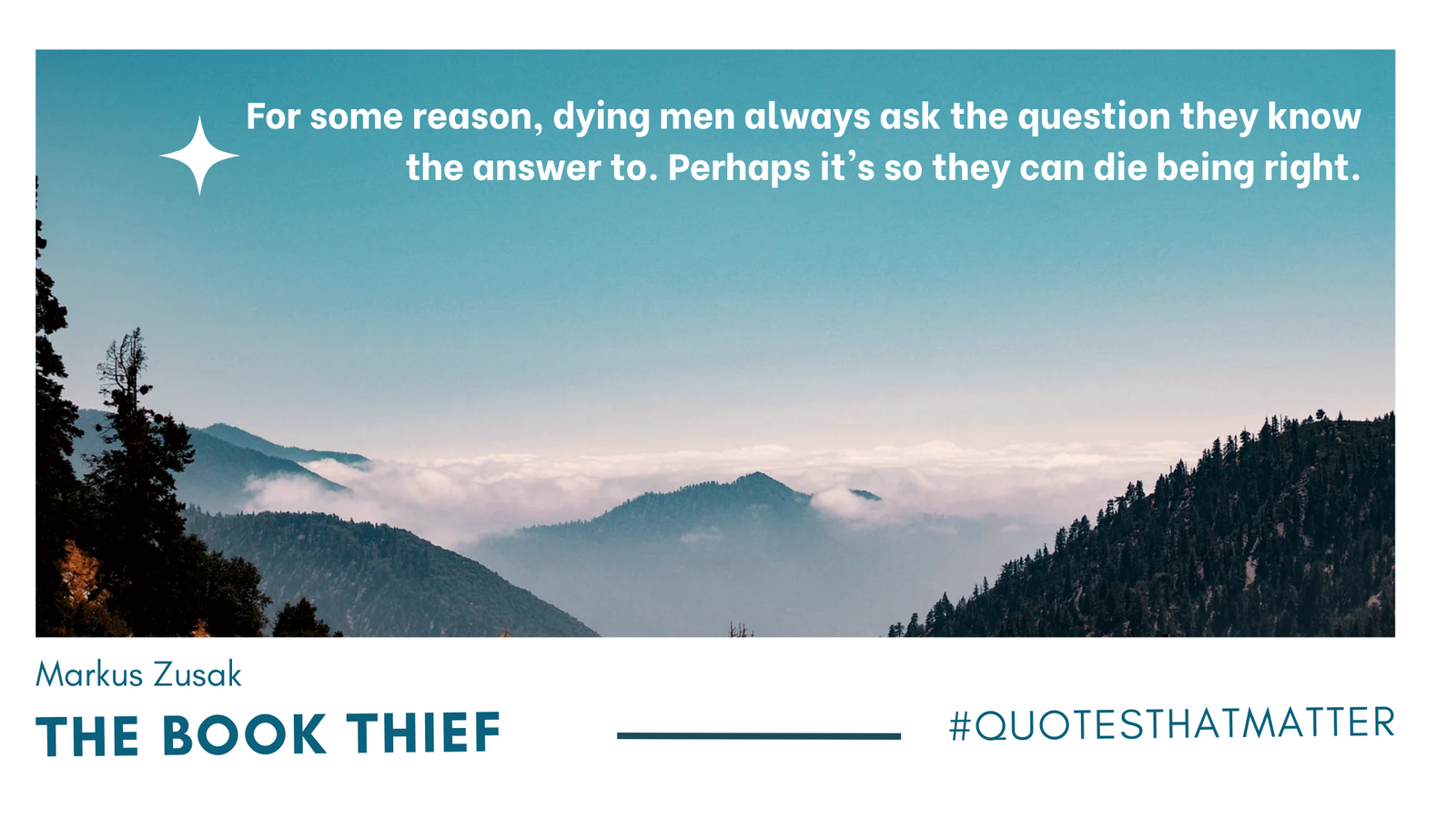

 Rudy Steiner, as portrayed in Markus ZZusak’sThe Book Thief, emerges as one of lliterature’smost compelling and multifaceted characters. His journey through the novel is a testament to the resilience of the human spirit, the importance of personal values, and the power of meaningful relationships.
Rudy Steiner, as portrayed in Markus ZZusak’sThe Book Thief, emerges as one of lliterature’smost compelling and multifaceted characters. His journey through the novel is a testament to the resilience of the human spirit, the importance of personal values, and the power of meaningful relationships.
There are no reviews yet.